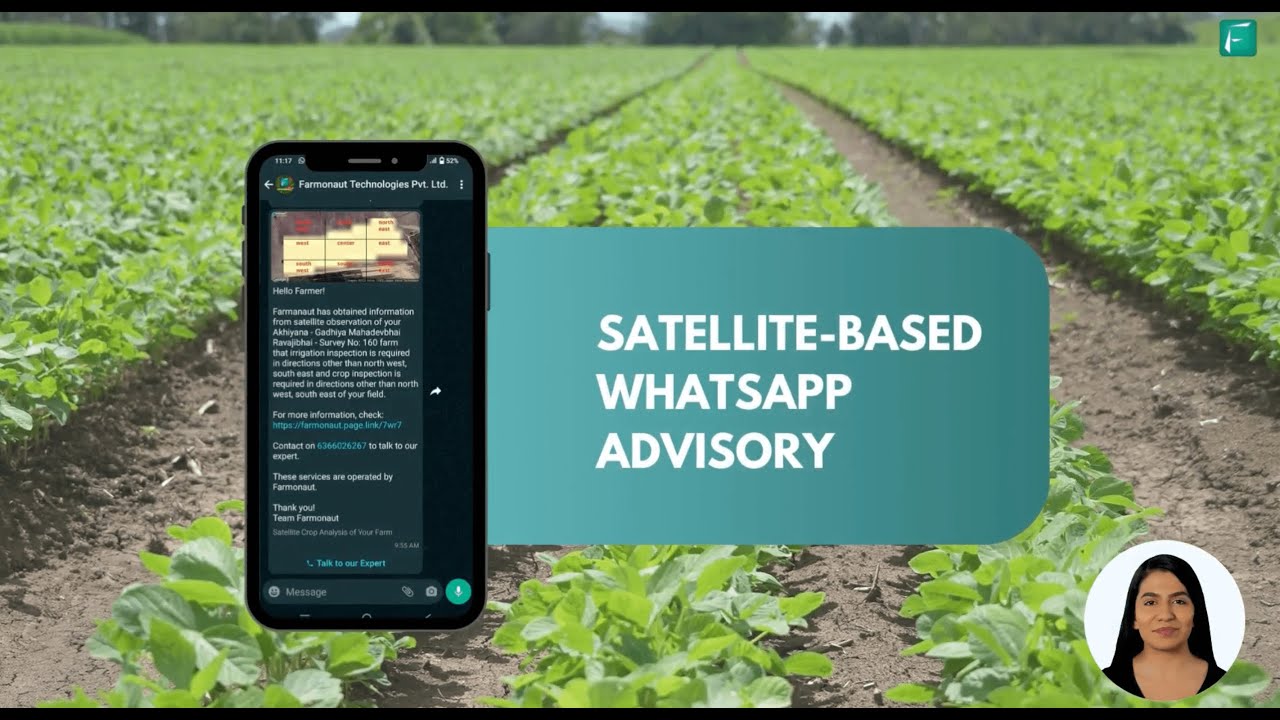Table of Contents
- Introduction: Agricultural Inputs Theft in Nkayi District
- Nkayi District: 4-Year Scandal Exposed
- Systemic Challenges in Zimbabwe’s Agricultural Supply Chain
- Summary Table of Reported Agricultural Inputs Theft Cases in Nkayi District (2020–2023)
- Key Moments and Stakeholder Reactions
- Investigating Input Theft in Agriculture: Extension Officer Conduct & Input Distribution
- Impacts on Maize Farmers and Rural Development
- Addressing Compound Fertilizer Theft & Maize Seed Theft: Rural Zimbabwe Solutions
- Farmonaut’s Role: Modernizing Agricultural Input Distribution Integrity
- Advanced Farm Management: Tackling Agricultural Input Integrity
- Frequently Asked Questions (FAQ)
- Conclusion: Building Transparency & Integrity in Zimbabwe’s Agriculture
“Over 4 years, Nkayi District reported significant agricultural inputs theft, prompting a formal investigation into rural input distribution integrity.”
Nkayi District: 4-Year Agricultural Inputs Theft Scandal Exposed
In recent years, Nkayi district agriculture – an integral pillar in Zimbabwe’s Matabeleland North province – has faced an upheaval that threatens the fabric of rural development. The agricultural inputs theft in Zimbabwe has been thrust into national headlines thanks to a four-year scandal involving the diversion of critical inputs intended for development. This blog post provides an authoritative, comprehensive investigation into the scale, causes, and implications of this scandal, with a focus on input distribution, extension officer accountability, maize seed and compound fertilizer theft, and the evolving solutions for Matabeleland North’s farming future.
This extensive exposé is based on facts and details sourced directly from The Southern Eye’s report: Nkayi agriculture inputs allegedly diverted, related official and media statements, and publicly available records. Our aim is to provide rural communities, policymakers, agricultural businesses, and international development professionals with a clear understanding of rural input theft and tangible avenues for reform, including the role of technology in enhancing agricultural integrity.
The Nkayi District Agricultural Inputs Scandal: Four Years of Theft and Evasion
At the heart of this probe lies a deeply troubling issue: presidential agricultural inputs earmarked for the empowerment of marginalized rural farmers were systematically diverted for private gain over several years, undermining both local food security and trust in Zimbabwe’s agricultural extension system.
Chronology and Nature of the Scandal
- Period of Occurrence: The thefts reportedly spanned the last four years, notably the 2020–2021, 2021–2022, 2022–2023, and 2023–2024 farming seasons.
- Main Actors: A number of Agritex field officers and supervisors were accused of orchestrating the theft, particularly in Nkayi District’s Ward 4 and 9, with inputs routinely being siphoned off during deliveries.
- Main Inputs Stolen: The reported stolen agricultural inputs included Compound D fertilizers, Pannar 413 maize seeds, and other Presidential Scheme resources.
- Modus Operandi: Supervisors allegedly instructed that a tonne of delivered inputs per consignment be diverted to their own homesteads, abetted by select field officers.
- Attempts at Accountability: Whistleblowers such as Marvelous Chiketa faced intimidation and threats after reporting the theft to authorities and police, leading to his eventual transfer for safety reasons.
These incidents bring longstanding issues—lack of oversight, endemic corruption, and dangers faced by honest officers—into sharp relief. The rural context of Nkayi district agriculture, where each bag of fertilizer or seed could determine harvest success, magnifies the human impact of these thefts.
Systemic Challenges in Matabeleland North: Extension Officers, Input Distribution, and Rural Development
The Nkayi district agriculture thefts are emblematic of broader “rural development challenges Zimbabwe” has grappled with for decades. At the intersection of input theft are:
- Lack of Auditable Supply Chains: Agricultural input distribution in Zimbabwe remains opaque, especially in remote districts like Nkayi.
- Extension Officer Conduct: Field officers have significant discretion in verification and distribution, creating opportunities for abuse if oversight is lacking.
- Community Impact: The consistent diversion of development inputs directly affects local maize farmers and other smallholders, impacting food security and rural livelihoods.
- Investigative Lapses: Reports suggest reluctance among local policing agencies to seriously investigate inputs theft cases, further discouraging whistleblowers.
- Administrative Gaps: Failure to act swiftly at the district and provincial levels allows malpractices to become embedded, as seen in responses to Chiketa’s plea for a formal probe.
Systemic, multi-year extension officer misconduct in Nkayi district has thus become a case study of supply chain failure and the fragile trust underpinning Zimbabwe’s rural agricultural sector.
“Extension officer misconduct in Nkayi contributed to a multi-year scandal, highlighting systemic challenges in Zimbabwe’s agricultural supply chain.”
Summary Table of Reported Agricultural Inputs Theft Cases in Nkayi District (2020–2023)
| Year | Number of Reported Cases (Estimated) | Estimated Value of Inputs Stolen (USD) | Main Inputs Involved | Impacted Wards/Areas | Notable Actions Taken |
|---|---|---|---|---|---|
| 2020 | 7 | $10,500 | Fertilizers, Maize Seeds | Ward 4, Ward 9 | Internal district-level reviews; limited action |
| 2021 | 11 | $17,000 | Pannar 413 Seeds, Compound D | Maphane, Gwelutshena | Police reports filed, no arrests |
| 2022 | 14 | $21,000 | Compound Fertilizers, Seeds, Equipment | Mushipe homestead, surrounding villages | Partial input recovery, heightened threats to whistleblowers |
| 2023 | 9 | $13,000 | Maize Seeds, Fertilizer | Nkayi District-wide | Provincial Agritex investigation; allegations labeled untrue |
Key Moments: Reporting, Whistleblowing, and Reaction from Authorities
Understanding the trajectory of the Nkayi inputs theft investigation reveals both individual courage and systemic inertia:
- Initial Exposures: Marvelous Chiketa, then Field Officer for Ward 4 and 9, documented and reported theft during input deliveries, specifically implicating his supervisor and, by extension, the district extension network.
- Intimidation Campaigns: Following his probe and follow-up with villagers about looted inputs, Chiketa experienced severe threats, forcing relocation to Kwekwe district.
- Police Proceedings: Despite evidence recovered—such as inputs found at Mushipe homestead—authorities in Gwelutshena were slow to act, delegating investigation to the local neighbourhood watch.
- Official Responses: Matabeleland North’s provincial Agritex officer, Thulani Ndlovu, downplayed the allegations, citing procedural irregularities and denying substantive theft. The Minister for Provincial Affairs and Devolution, Richard Moyo, requested the report be escalated to anti-corruption authorities.
These moments illustrate the difficult terrain for both justice and reform in Zimbabwe’s agricultural administration.
Investigating Input Theft in Agriculture – Extension Officer Conduct and Input Distribution
The presidential agricultural inputs scandal in Nkayi has exposed the profound weaknesses in Zimbabwe’s rural inputs delivery system. Extension officers, vested with significant authority, were reportedly able to divert critical resources intended for national food security and rural development challenges Zimbabwe still faces.
The probe into Agritex field officers highlighted:
- Gaps in Checks and Balances: While input deliveries were well-documented, follow-through audits or traceability protocols were insufficient to prevent and detect theft at multiple points.
- Professional Misconduct: The brazen nature of some thefts—inputs delivered directly to supervisors’ properties—reflects the difficulty of controlling conduct without external oversight or digital monitoring tools.
- Role of Whistleblowers: Input theft came to light not through internal audits but via threats to honest field officers, further emphasizing the critical importance of protecting whistleblowers and empowering villagers.
Such scandals reinforce the urgent need for transformation in how countries approach agricultural input distribution Zimbabwe, especially in regions like Matabeleland North and Nkayi.
Impact of Inputs Theft on Maize Farmers, Rural Livelihoods & Food Security
The consistent pattern of maize seed theft Zimbabwe and compound fertilizer theft rural Zimbabwe has direct, detrimental consequences for rural farmers and the broader economy:
- Reduced Productivity: Farmers deprived of vital inputs face lower crop yields, further harming regional food balances.
- Economic Insecurity: Stolen inputs represent lost investments by both the government and communities, perpetuating cycles of poverty and dependence.
- Erosion of Trust: When input distribution integrity is compromised, farmers—and donors—lose faith in government initiatives, threatening long-term rural development.
- Discouraged Participation: Risk of intimidation and lack of transparency may dissuade honest extension staff and discourage community reporting.
The result is a system that, unless reformed, leaves both authorities and beneficiaries vulnerable to repeated cycles of theft, inefficiency, and disappointment.
Ending Input Theft: Solutions for Rural Zimbabwe
How can Matabeleland North farming communities and national authorities turn the tide on input theft?
- Blockchain-Based Traceability: Farmonaut’s blockchain-based product traceability system is a game-changer for tracking agricultural inputs from delivery to deployment. Each bag of fertilizer or packet of seeds can be assigned a tamper-proof digital record, deterring theft and maximizing accountability.
- Real-Time Monitoring: By integrating satellite imagery solutions such as those available through Farmonaut across input distribution networks, district officials can verify crop growth patterns, input utilization, and potentially flag unexplained reductions in anticipated yields.
- Transparent, Auditable Records: A move towards digital, cloud-based input inventories cross-referenced with independent monitoring—such as via farm management platforms for large-scale operations—can reduce manual errors and curb fraudulent record-keeping.
- Whistleblower Protections: Instituting confidential, digital reporting channels can empower field officers and villagers to report theft without fear of intimidation or reprisal.
- Alignment of Financing and Distribution: Integrating monitoring with crop loan and insurance platforms—such as satellite-based verification for loan and insurance products—could link input provisioning to successful on-farm application.
These reforms align with the broader push for digital transformation in Zimbabwe’s agricultural sector.
Farmonaut’s Role: Modernizing Agricultural Input Distribution Integrity
In Zimbabwe and around the world, technology is redefining the fight against agricultural input theft. Farmonaut, as a pioneering agricultural technology provider, is firmly at the forefront of this movement. Our platform combines satellite-based farm management, blockchain traceability, and AI-driven advisory to bolster transparency, resilience, and productivity for all actors across the agricultural value chain.
- Satellite-Based Crop Health Monitoring: Farmonaut’s platform leverages multispectral satellite imagery to monitor crop health on both individual and aggregated scales, enabling early detection of anomalies tied to input underuse or misallocation.
- Jeevn AI Advisory: The Jeevn AI system provides real-time crop management insights to help farmers optimize input use, respond to environmental threats, and improve extension efficiency.
- Carbon Footprinting: For agribusinesses, Farmonaut’s carbon footprinting solution offers real-time emissions tracking, linking sustainable practices to responsible input utilization.
- Fleet and Resource Management: Our fleet management tools help optimize extension officers’ schedules, reduce misuse of vehicles for input diversion, and ensure logistics efficiency in rural districts.
- Scalable Access: Farmonaut provides affordable service tiers for individual farmers, small cooperatives, large agribusinesses, and even government agencies committed to upholding input traceability and agri-integrity.
Interested in exploring our precision agriculture offerings? Start your journey by downloading the Farmonaut Android App or iOS App. APIs for developers and researchers are available here (API documentation).
Farmonaut is committed to democratizing access to advanced agricultural monitoring, promoting supply chain transparency, and elevating the standard of rural service delivery across Matabeleland North and other key farming zones.
Advanced Technologies and the Future of Input Integrity in Matabeleland North
Looking ahead, the adoption of advanced digital tools in input delivery and extension management stands as the most sustainable option for rooting out entrenched corruption, boosting food security, and empowering honest actors within Zimbabwe’s agricultural system.
- Blockchain Traceability: Ensures full AUDITABILITY of each consignment—from arrival at district depots to distribution at ward and village levels
- Satellite & AI Monitoring: Provides real-time visual verification of cropping patterns, allowing early detection of “phantom” delivery claims
- Automated Alerts & Whistleblower Tools: Enable instant, confidential tipping on policy breaches or observable misappropriation
- Integrated Subsidy & Insurance Portals: Tie inputs provision and verification to performance-linked financial services
Supported by robust mobile and web accessibility, these systems promise greater justice for threatened whistleblowers and higher impact for every dollar invested in input schemes.
Farmonaut Subscription Options – Affordable Precision Agriculture for Everyone
Frequently Asked Questions – Nkayi District Agricultural Inputs Theft Scandal (2020-2024)
What are ‘agricultural inputs’ and why are they so important in Nkayi district agriculture?
Agricultural inputs include seeds, fertilizers, pesticides, and equipment provided to farmers as part of government or donor programs. In rural Zimbabwe, particularly in Nkayi district, timely and transparent distribution of inputs is vital — they directly determine crop output, especially in staple crops such as maize.
What triggered the recent probe into inputs theft in Matabeleland North?
Repeated reports of extension officers and supervisors diverting tonnes of government-supplied seeds and fertilizers, as exposed by whistleblower Marvelous Chiketa, forced authorities to formally investigate and confront broader issues in rural input distribution integrity.
How were field officers able to divert inputs for four years without arrests?
Reports indicate a combination of lack of oversight, intimidation of honest staff, and police inaction. In several cases, field officers responsible for deliveries would divert inputs to personal homesteads or to complicit supervisors. Whistleblowers faced threats, and police response was limited.
What measures can prevent future compound fertilizer and maize seed theft in rural Zimbabwe?
Adopting blockchain-based traceability, real-time satellite monitoring, stricter penalties, digital reporting tools for whistleblowers, and public transparency regarding deliveries and application can deter theft and restore public confidence in Zimbabwe’s agricultural systems.
How can technology like Farmonaut’s platform specifically help in the context of Nkayi district’s agriculture?
Farmonaut’s platform enables digital traceability of input deliveries, AI-driven crop health monitoring, and scalable management for both individual farms and government programs. This supports better tracking, accountability, and transparency at every stage, from delivery to application.
Who are the key authorities responsible for probing extension officer misconduct?
Local police (such as Gwelutshena station), district Agritex offices, Matabeleland North provincial agricultural extension supervisors, and the Zimbabwe Anti-Corruption Commission are primary actors responsible for investigation and prosecution.
How does the Nkayi district scandal compare to national trends in agricultural input theft?
While Nkayi’s episode is extensively documented thanks to whistleblowers, similar cases have been reported in other rural Zimbabwean districts. The recurring nature of such scandals underlines the need for system-wide reforms and technology-driven oversight.
Where can agribusinesses and extension agencies learn more about remote monitoring and input traceability?
Agribusinesses, NGOs, and government extension agencies can request demos and read more on Farmonaut’s traceability and farm management solutions at Farmonaut Product Traceability and Large Scale Farm Management Platform.
Conclusion: Building Integrity and Transparency for the Future of Zimbabwe’s Agriculture
The Nkayi district agricultural inputs theft scandal is a watershed moment. It has underscored not only the vulnerabilities in Matabeleland North’s extension and input distribution systems but also the resilience of committed field officers and villagers determined to expose wrongdoing. The real lesson is that lasting reform requires more than policy pronouncements – it demands the deployment of modern, auditable, and transparent management tools that empower every honest actor in the system.
At Farmonaut, we are committed to providing the digital backbone for this transformation. Our platform makes it possible for Zimbabwe’s farmers, NGOs, extension officers, and local governments to access affordable, scalable, and technology-driven solutions. By leveraging satellite-based farm monitoring, blockchain traceability, and data-driven resource management, we can collectively restore trust and productivity to Zimbabwe’s vital rural sectors.
For more information, download the Android App, iOS App, or get started on our web platform here. For developers, our API is available with full documentation here.
Together, we can address agricultural input distribution scandals, protect farmers, and advance rural development for generations to come.






















